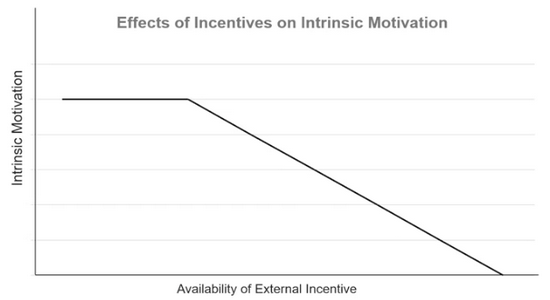Unit 4 - Motivation
1/33
There's no tags or description
Looks like no tags are added yet.
Name | Mastery | Learn | Test | Matching | Spaced | Call with Kai |
|---|
No analytics yet
Send a link to your students to track their progress
34 Terms
Motivation
a need or desire that energizes and directs behavior toward a goal
Primary Need
innate/unlearned
Secondary Needs
Psychological
Evolutionary Theory
Replaced Instinct Theory
Adaptive/Survival functions of behavior
Natural Selection
Strength: Evol Psychology Helps explain behavioral similarities due to adaptation from our ancestral past.
Weakness: explains animal behavior better than human behavior, humans have few true instincts
Drive Reduction Theory
The idea that a physiological need creates an aroused tension state (a drive) that motivate an organism to satisfy the need
Strength: Explains our motivation to reduce arousal by meeting basic needs such as hunger or thirst
Weakness: It focuses too much on biological drives, and doesn't explain other motivations like curiosity, love, or pleasure.
It doesn't explain why people do things that don't reduce their drives, like eating when they're not hungry.
It doesn't account for social or psychological factors.
Incentive theory
states that motivation is driven by external rewards or stimuli that encourage behavior, such as money, praise, or success
Self-Determination Theory
the theory that we feel motivated to satisfy our needs for competence, autonomy, and relatedness
Overjustification Effect
Occurs when an unexpected external incentive such as money or prizes decreases a person’s intrinsic motivation to perform a task

Yerkes-Dodson Law
people perform best at a moderate level of arousal
Arousal Theory
Human motivation aims to increase arousal - We feel driven to experience stimulation
Optimal Level of Arousal
individuals are motivated to reach an optimal level of arousal, where they feel alert and engaged but not stressed
Intrinsic Motivation
Motivation that stems from internal factors, benefits associated with the process of pursuing a goal (autonomy, mastery, purpose)
Extrinsic Motivation
Motivation that stems from external factors, benefits associated with achieving a goal or avoiding punishment (compensation, punishment, reward)
Social Motivation
Aim of motivation is to fulfill successively higher levels of rank ordered needs
Lower needs must be met before individuals are driven to satisfy higher-level needs.
Cognitive Dissonance
Aim of motivation is to reduce the tension caused by an inconsistency in one’s thoughts and beliefs
Instinct
complex, inherited behavior patterns characteristic of a species that is unlearned
Instinct Theory People
are motivated to behave in certain ways because they are evolutionarily/genetically programmed to do so with survival instincts
Lewin’s Motivational Conflicts Theory
A psychological theory proposed by Kurt Lewin that describes three types of conflicts individuals face when making decisions
Approach-approach
the least stressful social conflict that involves 2 options, only one of which you can choose.
Ex. You are accepted to both Harvard and Dartmouth. Which do you choose?
Avoidance-avoidance
involves 2 negative options, one of which you must choose.
Ex. mow the lawn or wash the dishes.
Approach-avoidance
involves whether or not to choose an option that has both a positive and negative consequence or consequences. You are both attracted and repelled by the same goal.
Ex. you like to eat spicy food but it gives you heartburn.
Multiple approach-avoidance
most complex of the social conflicts that involves several alternative courses of action that have both positive and negative aspects.
Ex. you only have a certain amount of money to spend on prom.
Take a limo: spend most of your budget on the limo and have very little money left for a nice dinner
Borrow your parent’s car: it can only fit one other couple and they can’t give it to you when you want it, but you save money
Get a party bus: cheaper than a limo, but you don’t know all of the couples going.
Sensation-seeking theory
proposes that one's level of need for varied or novel experiences is the basis of motivation
Hunger Motivation
Understanding why we eat, hunger is something that makes us do things (motivator) and is a drive state
Hunger is generally triggered by…
low glucose levels in the blood, and behaviors resulting from hunger aim to restore homeostasis regarding those glucose levels
Leptin
Protein hormone secreted by fat cells; when abundant, causes the brain to increase metabolism and decrease hunger
Ghrelin
Hormone secreted by empty stomach; sends “I’m hungry” signals to the brain
Lateral hypothalamus (LH)
the “on” button for eating.
*Remember: If it is lesioned, people will not feel hungry and they will become little (LH)
Ventromedial hypothalamus (VMH)
the “off” button for eating.
*Remember: If it is lesioned, people will not feel full and they will become very huge (VMH)
Homeostasis
The mind’s and body’s regulation of internal stability, maintaining emotional and physiological balance
Thrill Seeking
A personality trait characterized by the pursuit of intense and risky experiences for excitement and adrenaline
Adventure Seeking
The psychological drive to engage in novel and challenging experiences, often involving exploration and risk
Disinhibition
A tendency toward impulsive behavior, disregarding social norms and potential risks
Boredom Susceptibility
A trait reflecting a low tolerance for routine, leading to a constant need for novelty and stimulation